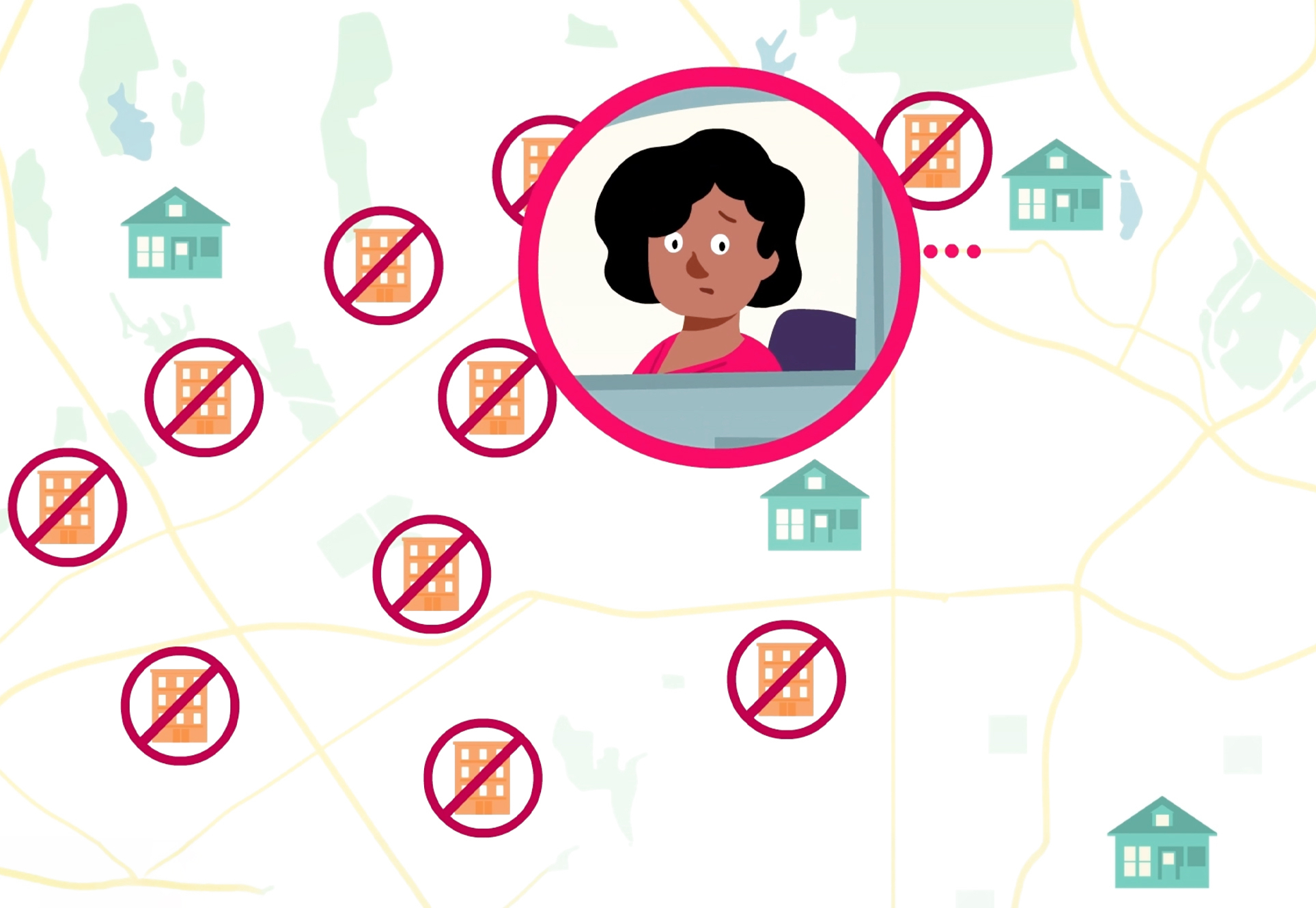When you think about California’s housing shortage and affordability crisis, climate change is probably not the first thing that comes to your mind. But the epic shortage of housing in our cities is actually making climate change worse—and at the same time, climate change is worsening the housing shortage.
How are they connected?
While it’s usually difficult or impossible to get new housing approved in large swaths of coastal cities—in Los Angeles, it’s illegal to build multi-family housing like four-plexes or small apartments in over 75% of the city—it’s much easier to build low-density housing further inland, in locations that are far from where people work, shop, go to school, or go to the doctor.
These long distances between homes and destinations—what some people refer to as “super commutes”—mean more climate pollution from our personal vehicles. Cars and trucks are now the number one source of climate pollution in the state of California.
In many California cities and counties, two-thirds of greenhouse gas emissions are from vehicles, according to LA Times data gathered in 2018.
And it has a lot to do with the housing shortage: California is short 3.5 million homes, per a McKinsey Global Institute report. This shortage forces workers to “drive until they qualify,” a phrase real estate agents use to describe what Californians, in Los Angeles and across the state, must do to find housing they can afford.
Unfortunately, over the past few decades, many of the newer homes that have been built far away from our urban cores are in areas known as the “wildland-urban interface,” or WUI – places that are more prone to wildfires and floods. So in addition to living in communities far from their jobs, with lengthy, polluting commutes, these homes also place citizens directly in areas where they are more likely to lose their homes to a climate catastrophe. We’ve seen it play out with the destructive wildfires that have hit our state in recent years.
So the shortage of housing in our cities is making climate change worse, while climate change is worsening the housing shortage.
The causes of the housing shortage are complex, and our governments need to change a lot of regulations and policies to start to solve the problem. But a primary culprit: local land use regulations, including restrictions covered by “zoning,” in many cities that make it difficult, if not impossible, to build more housing.
Vast swaths of many California cities, like Los Angeles and San Francisco, have de facto apartment building bans in areas zoned for single-family housing, for instance. These policies force those priced out of home ownership or looking for affordable rentals to move further away, kicking off the cycle of sprawl that consumes valuable farmland and open spaces, clogs freeways, and makes it harder for California to achieve its goals for addressing climate change.
The end result of these policies? Inequity. Not only does it make climate change worse when people are pushed into car-dependent sprawl, but it also causes Los Angeles communities to lose their diversity and sense of community, blocking opportunities for all but the wealthiest home buyers.
Zoning policies that favor low-density, single family homes are, essentially, bans on creating and supporting thriving, economically diverse, walkable communities that are abundant in opportunities for all residents.
Organizations like California YIMBY are focused on correcting the historic inequities in our land use regulations by changing state law to make it faster, cheaper, and easier to build multi-family homes in high-opportunity urban areas – places with good jobs, amenities like schools and health care facilities, and walkable neighborhoods with good transit.
California YIMBY empowers Californians across the state to engage with state officials on housing policies to ensure laws and regulations are evidence-based, equitable, and inclusive.
They also work in coalition with groups focused on the environment, climate change, equity, and affordable housing to draft and advocate for policies that result in the broadest benefits to the most Californians, all while ensuring we stay focused on our urgent climate change objectives.
The group has been instrumental in getting housing legislation passed; five major new housing laws sponsored and supported by California YIMBY were signed into law in 2023, following an equally successful effort in in 2021.
To learn more about CA YIMBY and their mission to create a more equitable, inclusive, vibrant California, visit their website here.
This is a sponsored post by CA YIMBY.







